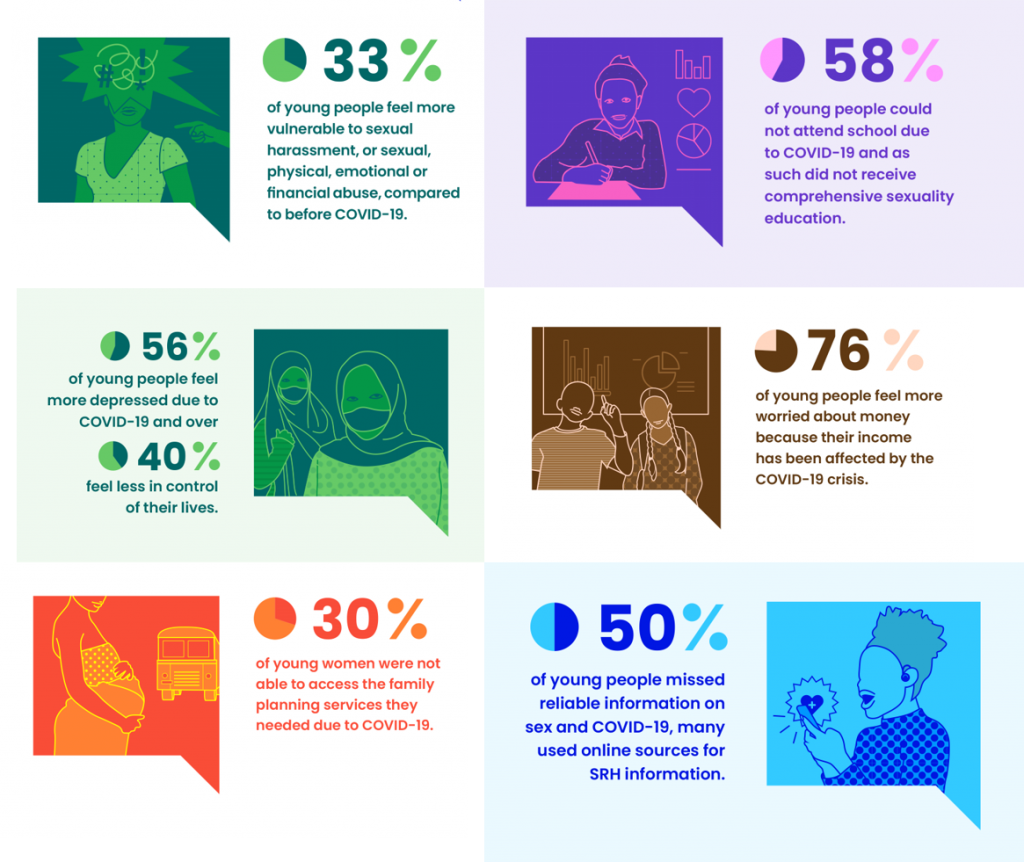
The indirect impact of the COVID-19 pandemic, and the measures to curb it, have had a huge impact on all aspects of young people’s lives. This has a detrimental effect on their sexual and reproductive health and rights, a new Rutgers study has found. Research shows that all negative effects are interlinked, laying bare and worsening existing inequalities.The study was held in 2020, after the first initial response to the COVID-19 pandemic. Almost 2,700 young people from Ghana, Indonesia, Kenya, Nepal, Uganda and Zimbabwe responded in an online survey. Harder to reach communities, such as young LGBTI people or people with disabilities, participated in focus group discussions, to ensure their perspectives were also taken into account.A main conclusion of the study, is that the response to the pandemic hit young people’s lives in many ways, and there was clear interlinkage between the effects. 76% of young people in the study worried more about money, as their income was reduced during lockdown. More than half reported feeling depressed and 40% felt less in control of their lives. Worries about income and mental health issues led to poorer sexual and reproductive health, for example through an increase of child marriages or unintended pregnancies.Click here to read the full report